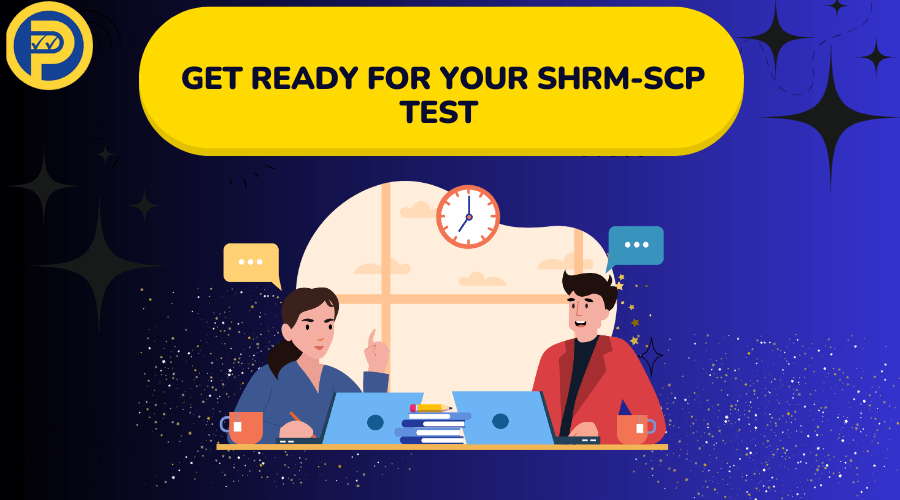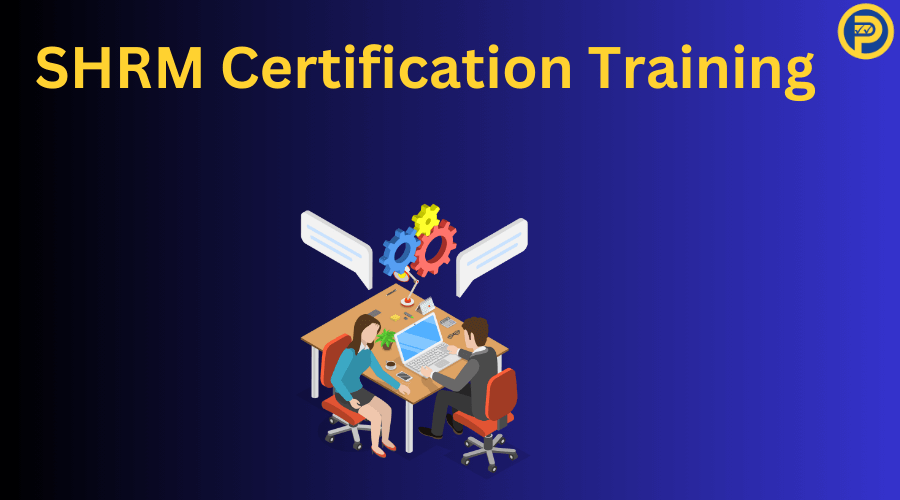The Society for Human Resource Management (SHRM) certification training is a crucial pathway for HR professionals aiming to enhance their skills and advance their careers.
This training prepares candidates for the SHRM Certified Professional (SHRM-CP) and SHRM Senior Certified Professional (SHRM-SCP) certifications, which are highly regarded in the HR field.
This article explores the value of SHRM certification, details the preparation course content, outlines the exam windows and criteria, and discusses additional resources available for candidates.
Additionally, it delves into the components of the SHRM Body of Competency and Knowledge (SHRM BoCK), the advantages of instructor-led learning, and how the SHRM BASK framework enhances exam preparation.
Read on: SHRM Education
The Value of SHRM HR Certification
Career Advancement
Obtaining a SHRM certification is a significant step for HR professionals aiming to distinguish themselves in a competitive job market.
The certification not only validates an individual’s knowledge and expertise but also enhances their credibility among employers.
According to SHRM, certified professionals are actively sought after by over 5,000 employers each month, highlighting the demand for qualified HR practitioners.
Recognition in the Industry
SHRM certifications are recognized globally, making them valuable assets for HR professionals regardless of their geographical location. These credentials demonstrate a commitment to ongoing professional development and adherence to industry standards.
Employers often prefer candidates with SHRM certifications because they reflect a comprehensive understanding of HR practices and principles relevant to today’s workforce.
Skill Development
The process of preparing for SHRM certification involves extensive study and engagement with contemporary HR issues. Candidates gain insights into best practices, legal compliance, and strategic HR management.
This preparation not only equips them with the necessary knowledge to pass the exams but also enhances their practical skills that can be applied in real-world scenarios.
Related post: Is SHRM Certification Worth It
What are the Components of the SHRM Body of Competency and Knowledge (SHRM BoCK)?
The SHRM Body of Competency and Knowledge (SHRM BoCK) serves as a foundational framework for HR professionals preparing for certification. It outlines the essential competencies required for effective performance in various HR roles.
Core Competencies
The SHRM BoCK consists of two primary categories: Behavioral Competencies and Technical Competencies.
Behavioral Competencies
- Relationship Management: Building effective relationships within an organization.
- Consultation: Providing guidance on HR issues.
- Global & Cultural Effectiveness: Navigating diverse work environments.
- Leadership & Navigation: Influencing teams towards achieving organizational goals.
- Communication: Effectively conveying information to diverse audiences.
- Critical Evaluation: Analyzing data to inform decision-making.
- Global & Cultural Effectiveness: Understanding different cultural contexts in HR practices.
Technical Competencies
- HR Expertise: Knowledge of HR laws, policies, and practices.
- Technology Management: Utilizing technology effectively within HR functions.
- Talent Acquisition: Strategies for recruiting and retaining talent.
- Employee Engagement: Techniques for fostering a positive workplace culture.
- Compensation & Benefits: Understanding compensation structures and benefit programs.
- Learning & Development: Promoting employee growth through training programs.
This structured approach ensures that candidates develop a well-rounded skill set that is applicable across various HR scenarios.
Check this out: Try SHRM-CP Free Questions
SHRM Certification Preparation Course Content
Overview of Course Structure
The SHRM certification training is structured around the SHRM Body of Applied Skills and Knowledge (BASK), which outlines the competencies essential for effective HR management.
The preparation courses cover various topics within this framework, ensuring that candidates are well-equipped to handle the challenges they may face in their roles.
Core Competencies
The SHRM BASK identifies 14 functional areas of HR knowledge along with 9 behavioral competencies. Key topics include:
- Technical Expertise: Knowledge of HR laws, policies, and practices.
- Relationship Management: Skills in building effective working relationships.
- Consultation: Ability to provide guidance on HR issues.
- Global & Cultural Effectiveness: Navigating diverse work environments.
- Leadership & Navigation: Influencing teams towards achieving organizational goals.
Preparation Methods
Candidates have several options for preparing for their SHRM certification exams:
- Self-Study: Utilizing the SHRM Learning System, which provides comprehensive materials including interactive online content, practice questions, and study guides tailored to different learning styles.
- Instructor-Led Courses: Engaging in structured learning environments led by certified instructors. These courses can be offered in-person or online, allowing flexibility for busy professionals.
Assessment Tools
The SHRM Learning System includes various assessment tools to help candidates gauge their understanding and readiness for the exam:
- Pre-Tests: Establish baseline knowledge and identify areas needing improvement.
- Practice Questions: Over 2,000 practice questions help reinforce learning and build confidence before exam day.
- Interactive Learning Modules: Engaging content tailored to individual learning styles ensures comprehensive understanding.
Continue reading: What is the Best Way to Prepare for the SHRM?

What are the Advantages of the Instructor-Led Learning Option for SHRM Certification?
Instructor-led training (ILT) offers several distinct advantages over self-paced learning options, particularly for those preparing for SHRM certification.
Structured Learning Environment
ILT provides a structured environment where learners can focus on course material without distractions commonly found in self-paced settings. This structure helps maintain motivation and accountability among participants.
Immediate Feedback
One of the key benefits of ILT is the opportunity for immediate feedback from instructors. Participants can ask questions in real-time and receive clarifications on complex topics, which enhances understanding and retention of information .
Peer Interaction
Instructor-led courses foster collaboration among participants through discussions and group activities. This interaction allows learners to share experiences, learn from one another, and build professional networks that can be beneficial throughout their careers .
Expert Guidance
Courses led by certified instructors ensure that participants receive high-quality education based on current best practices in HR management. Instructors can offer insights from their own experiences in the field, enriching the learning experience .
Engaging Learning Activities
ILT often incorporates hands-on activities that promote active learning rather than passive consumption of information. This engagement helps participants retain information better compared to traditional lecture-based formats.
Try this: Try SHRM-SCP Free Questions
How Can the SHRM BASK Framework Enhance Exam Preparation?
The SHRM BASK framework plays a critical role in enhancing exam preparation by providing a clear roadmap for what candidates need to study.
Comprehensive Coverage
By outlining specific competencies required for effective HR practice, the BASK framework ensures that candidates cover all necessary material during their preparation .
This comprehensive approach minimizes gaps in knowledge that could hinder performance on the exam.
Focused Study Plans
Candidates can create focused study plans based on the competencies outlined in BASK. By prioritizing areas where they feel less confident or have less experience, individuals can tailor their study efforts more effectively.
Real-World Application
The BASK framework emphasizes practical application alongside theoretical knowledge. Candidates learn not just what concepts mean but how they apply them in real-world scenarios—an essential skill tested during exams .
Alignment with Exam Content
The certification exams are directly aligned with the BASK framework, meaning that candidates who thoroughly understand these competencies will be well-prepared for what they will encounter on test day .
This alignment increases candidates’ confidence as they approach their exams.
Related: SHRM Study Materials
What are the Most Common Challenges Faced During SHRM Certification Exam Preparation?
While preparing for SHRM certification can be rewarding, candidates often encounter several challenges along the way:
Time Management
Balancing study time with work responsibilities can be difficult for many candidates. The need to juggle professional obligations while dedicating sufficient time to study often leads to stress and burnout .
Information Overload
With vast amounts of material available through various resources like textbooks, online courses, and webinars, candidates may feel overwhelmed by information overload. Determining what is essential versus supplementary can be challenging .
Test Anxiety
Many individuals experience anxiety when approaching high-stakes exams like those required for certification. This anxiety can impact performance if not managed effectively through preparation strategies or relaxation techniques .
Self-Motivation
For those opting for self-study methods without an instructor’s guidance or peer support, maintaining motivation can be difficult over time. The lack of accountability may lead some candidates to procrastinate or lose focus on their study goals .
Find out: SHRM-CP Pass Rate
Additional Tips for Successful Exam Preparation
To further enhance your chances of success when preparing for your SHRM certification exams, consider implementing these additional strategies:
Create a Study Schedule
Developing a detailed study schedule helps allocate specific time slots dedicated solely to exam preparation. By breaking down topics into manageable sections over weeks or months leading up to your exam date, you establish consistency while reducing last-minute cramming stress.
Join Study Groups
Collaborating with peers who are also preparing for their certification can provide valuable support during your studies. Study groups allow participants to share insights about challenging topics while fostering accountability among members as they work towards common goals.
Utilize Online Resources
In addition to formal training materials provided by SHRM or other organizations offering prep courses; numerous online resources exist such as forums dedicated specifically towards discussing exam content where individuals share tips based on personal experiences navigating similar challenges successfully.
Practice Mindfulness Techniques
Incorporating mindfulness techniques such as meditation or breathing exercises into your routine may help alleviate some anxiety associated with high-stakes testing situations.
Practicing these techniques regularly will promote mental clarity while enabling you better manage stress levels leading up until test day.
By integrating these strategies into your preparation plan alongside utilizing available resources effectively; you will position yourself favorably towards achieving success on your journey toward obtaining either SHRM-CP/SCP certifications.
FAQS
Can I get SHRM Certified Without Experience?
Yes, you can obtain SHRM certification without prior HR experience. The SHRM Certified Professional (SHRM-CP) does not require work experience, unlike some other HR certifications.
However, while certification can enhance your resume, it may not significantly improve job prospects without relevant experience. Employers often prioritize candidates with practical HR experience over those with only certifications.
To strengthen your application, consider gaining related skills through internships or entry-level positions in HR or related fields, as hands-on experience is crucial for success in the industry.
Is the SHRM Exam Hard?
The SHRM exam, particularly the SHRM-CP, is often regarded as moderately difficult. It consists of 134 multiple-choice questions, including 24 unscored items, and requires a time investment of 3 hours and 40 minutes for completion.
Success largely depends on thorough preparation, with many candidates reporting study times ranging from 41 to 120 hours.
While some individuals with extensive HR experience may pass without extensive study, most find that structured preparation significantly enhances their chances of success. Thus, adequate study and familiarity with the exam format are crucial for achieving a passing score.
Is SHRM Certification Valuable?
SHRM certification is highly valuable for HR professionals, enhancing career prospects and salary potential. It signifies a high level of HR knowledge and strategic understanding, making candidates more attractive to employers.
Research indicates that certified professionals can earn significantly higher salaries—up to 89% more for the SHRM-SCP compared to non-certified peers.
Additionally, SHRM certification is recognized globally, reflecting competency in applying HR principles to real-world situations. Overall, obtaining this credential can lead to greater job security, increased credibility, and improved promotion opportunities within the HR field.

